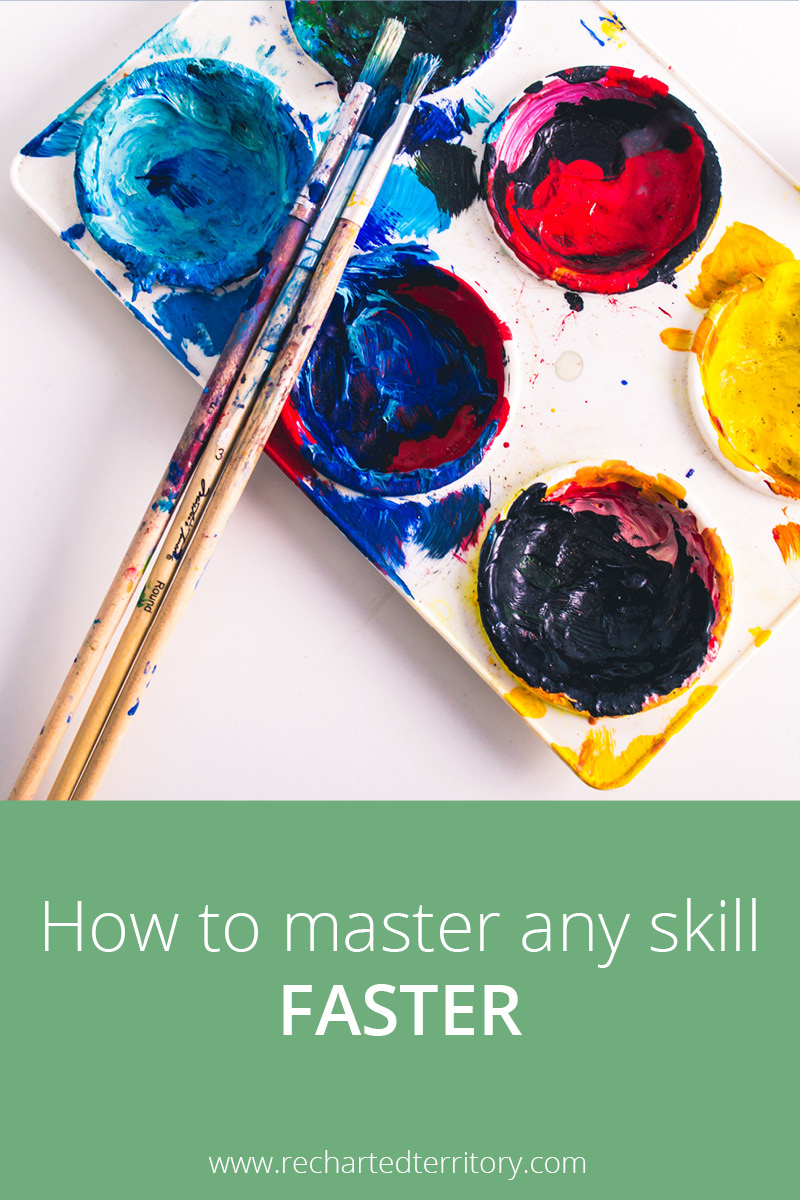

COVID-19 has dramatically changed all of our lives, forcing most individuals and organizations to adapt. It has exposed both systemic problems and the good of humanity. We can solve difficult and complex problems together. If you want to support the global effort to prevent, detect, and respond to this pandemic, please consider donating to the WHO’s COVID-19 Solidarity Response Fund.
Whether you’re social distancing and spending more time at home now, or you’re reading this post in the future, there are probably skills on your “to learn” list.
Maybe you want to level up your expertise for your career, start a passion project, or improve skills in your personal life.
What if we could learn faster, deeper, and more efficiently? How would we need to approach learning differently to make that happen?
Scott Young, the author of “Ultralearning” asked similar questions after succeeding in his quest to complete all of the classes in MIT’s Computer Science undergraduate curriculum in one year. Since then, he has talked to many other “ultralearners” and curated a list of ultralearning principles that we can apply to our own learning endeavors.
According to Young, ultralearning is “a strategy for acquiring skills and knowledge that is both self-directed and intense.”
Your ultimate goal could be anything. Such as being able to speak a foreign language fluently in a few months, becoming a successful speaker, or mastering technical skills to create your own products. Or maybe you just want to learn enough about a topic to discuss it with your co-workers or friends.
Now that you have a goal in mind, what are the ultralearning principles and how can we apply them?
Metalearning
The first principle is called “metalearning.” Basically you want to start by researching how other people learn about the subject or skill you’re interested in.
You can do this by asking how someone who has mastered the skill you’re pursuing got to where they are. What kinds of books, courses, or mentors did they turn to? What kinds of theories did they need to understand? How did they practice their skills? What order do people usually learn the subject in to go from novice to expert?
Once you uncover the typical paths to mastery, you can add to that default learning plan or deemphasize areas that won’t help you reach your desired goals.
Focus
We all know about the need to focus but it can be difficult to do in practice. Young offers a few tips including removing distractions and committing to just 5 minutes at first to break through procrastination.
Directness
Another principle that’s less commonly used is direct practice. Basically, if you want to get better at something, the best strategy is to just do it. If you want to get better at playing the piano, then find a piano to play. To be a better artist, make art. If you want to learn how to create your own product or business, then try to build a product or business. Speak Spanish with native Spanish speakers.
Learning the skills you need in the context that you need them can help you make progress faster. You’ll also notice which additional skills you might need to add to your learning plan to reach your goals.
Drill
Mastering a skill or topic often involves improving multiple sub-skills at the same time. Drills help to isolate and improve individual skills that might be holding you back. For example, maybe you want to become a better leader so you spend some time paying attention to your team members’ working styles. Or maybe you practice improving your email communication.
Try direct practice, then pick some drills to work on your weakness. Finally, go back to direct practice to integrate the sub-skill back into your work.
Retrieval
The act of testing yourself or retrieving information from memory, can help you learn more effectively, compared to passively reviewing content. To test yourself, you can use flashcards, ask yourself questions related to the content, or give yourself challenges to test your knowledge. Another tip is to make concept maps by writing down everything you know about a topic on a piece of paper, without referencing a book or the internet. This forces your brain to store the knowledge, rather than depending on external references.
Feedback
Another key learning technique that we might shy away from is getting immediate feedback. This could look like feedback from other people, or comparing your current work to your ideal target to identify areas to improve. Direct practice is one way to identify your strengths and weaknesses. But asking others for feedback could be helpful to spot opportunities that you might not notice. Sometimes the feedback tells you which areas to improve and how, but just tracking your holistic outcomes could be enough to help you continually improve.
Retention
Unfortunately, we tend to forget what we’ve learned. But Young offers some tactics to remember the most important aspects, such as regularly testing yourself or doing refresher projects. You can also try to turn certain skills into habits so that you no longer need to think about what you’re doing. And overlearning, or going beyond the skill level that you actually need, can help you further solidify your skills and knowledge in the level below it.
Intuition
What separates experts from novices? Young states that beginners tend to look at the superficial aspects of a problem while experts hone in on the underlying principles of a problem. Over years of experience, experts built up a library of past examples and patterns to reference.
How do we strengthen our intuition in a new field? You’re probably learning about new techniques, but do you know why those recommendations work? For example, why and when is that scaling framework effective? Are there examples when it isn’t? What are the principles and assumptions behind that solution? If you started from the base principles and tried to solve the problem the original creators did, would you come to the same answer or a different one? Ask questions and practice solving problems from first principles to strengthen your intuition.
Experimentation
Young explains that in the beginning, learning usually involves accumulating information. And since there are likely more beginners than experts in your field, there are usually a lot of options to learn by following someone else’s footsteps via books, blogs, courses, examples, and case studies.
But as you go farther along your unique path to mastery, there are fewer role models to follow. Learning becomes more about unlearning past lessons and experimenting to create new findings. You could experiment with new learning techniques, dig into subtopics, or blend skills from different fields to create new valuable combinations.
With the world rapidly changing, we find ourselves needing or wanting to learn new skills, but often without the time or resources to go back to school full time. Young offers a framework for approaching self-directed learning projects to gain the most value out of them. I encourage you to check out his book for more case studies and tips.
What skill would you like to master?